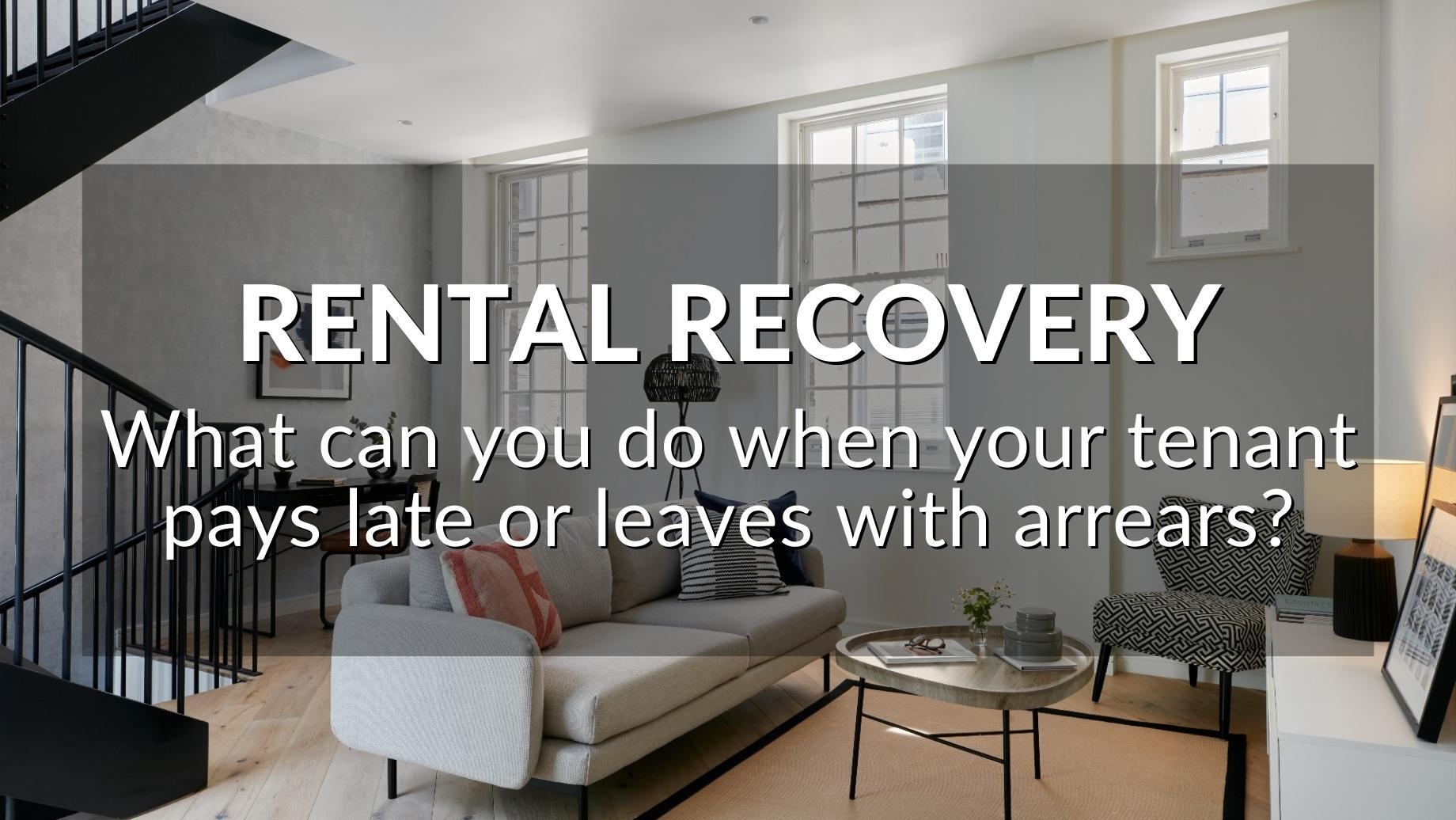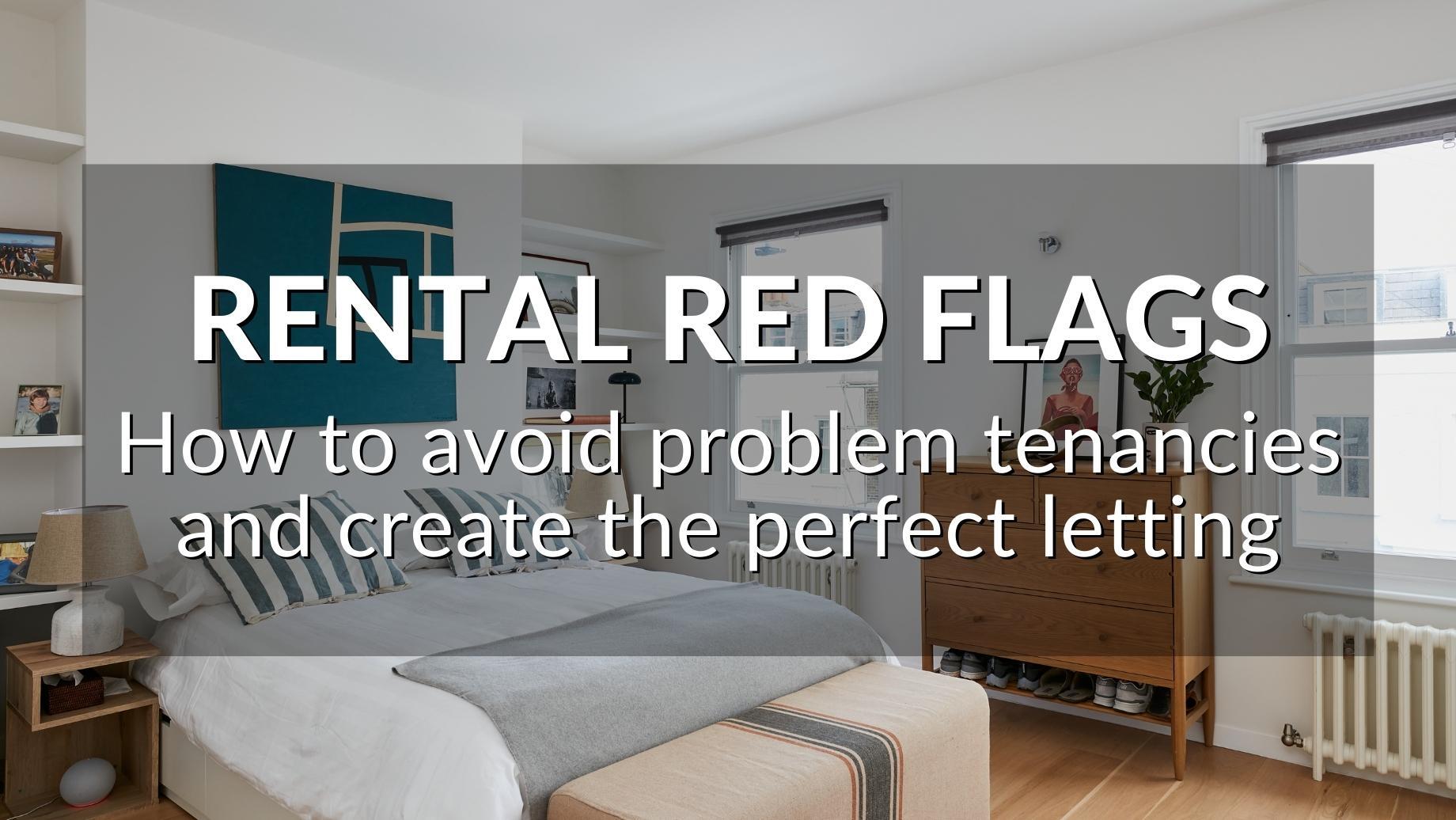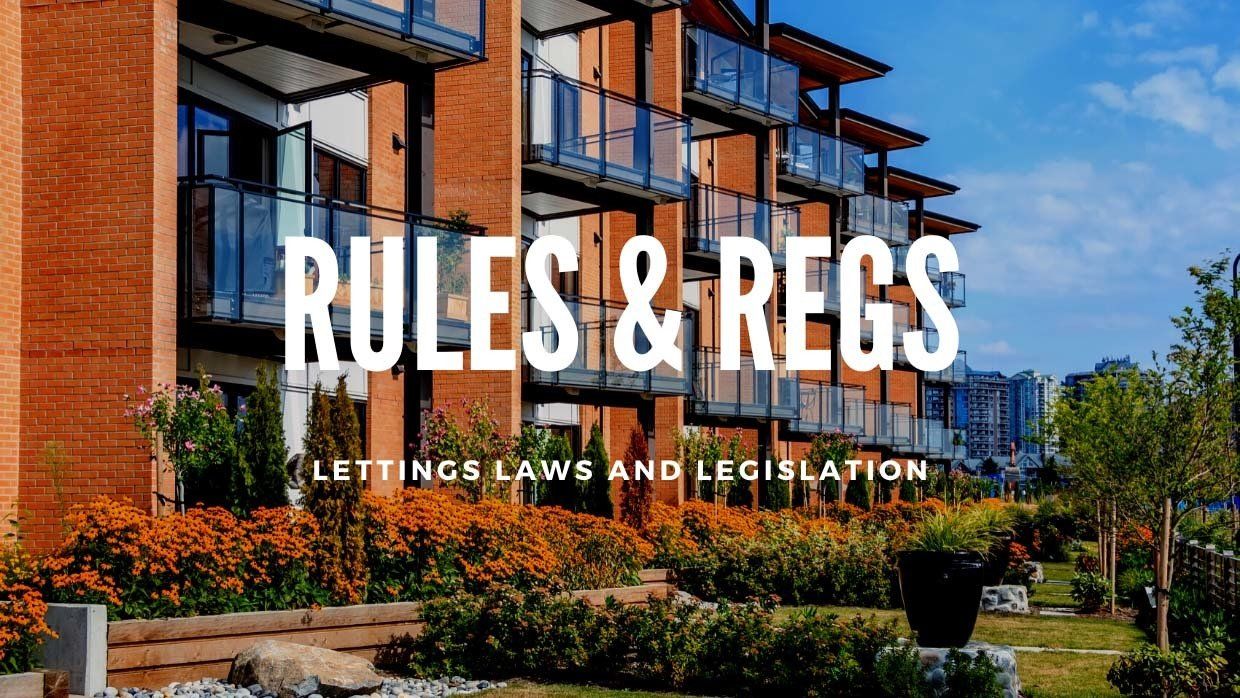LETTINGS LAWS AND LEGISLATION
Did you know that there are more than 140 laws and 400 pieces of legislation covering rental property in the UK?
There was a time when lettings was seen as the easier side of estate agency, with sales having the image of more experienced or skilled people. But with the increase in rules and regulations around property rentals, the status of lettings has been completely transformed. Now, landlords and agents need to be thoroughly on top of exactly what is required of them, with hefty penalties for those who fall short.
The extra legislation has helped to improve the quality of rental property and to reduce unsavoury practices within the rental sector. While most landlords take a natural pride in the quality of their rental investments, there was relatively little in place until fairly recently to legally ensure that rented properties were actually habitable. But the declining trend in home ownership among people in their 30s and 40s has resulted in higher tenancy levels and consequently more attention.
Obviously we can't go into every rule and regulation here. Many are common sense and dealt with in standard tenancy agreements, but these are the five areas you'll most likely encounter as a landlord and that are essential to understand to give your tenancies a good beginning, middle and end.
GAS SAFETY
Most landlords are familiar with current gas safety regulations as they've been around since the 1990s and have remained fairly constant, but there's no harm in reiterating their requirements.
Every rental property with a gas supply must have a Gas Safety Check every year carried out by a Gas Safe registered engineer which covers all gas appliances, pipework and flues supplied by the landlord. That includes the boiler, the oven and/or hob, and tightness testing for gas meters.
The inspection can be carried out up to two months early and the new certificate can be pre-dated to commence at the end of the existing one.
Your certificate must be available for the tenants to view and it's illegal for a property with gas to be let without a safety certificate. Doing that could lead to a criminal prosecution.
ELECTRICAL SAFETY
Despite the Government withdrawing its latest tweaks to the Electrical Safety Standards in the Private Rented Sector (England) Regulations 2020, the law itself will still come into force.
ARLA Propertymark - the Association of Residential Letting Agents - felt there were too many inconsistencies in the Government's latest wording, leaving too much open to interpretation and little clarity among landlords and letting agents over what the amendments actually meant.
Nonetheless, all new tenancies that begin after 1st July 2020 must have a valid EICR (Electrical Installation Condition Report), and all existing tenancies must have an EICR by 1st April 2021. The reports are valid for a maximum of 5 years and every property must have a valid report for the duration of the tenancy.
Many older homes may not have had their wiring tested for a long time which means that, given all remedial works must be carried out by a certified electrician by the time a tenancy begins, it's wise to have the inspection booked in as soon as you know an existing tenancy is ending.
As yet, failing to comply is not a criminal offence, but it is costly, with fines up to £30,000.
PROPERTY INSURANCE
You may find this surprising, but landlords are not legally required to have buildings insurance in place for their rental properties. However, it would be crazy not to have it and, for any property where you have a mortgage, it will certainly be a condition from your lender that buildings insurance is in place. They may also require sight of the policy. Standard Assured Shorthold Tenancy agreements will also state that buildings insurance is in place, so you'd be going against accepted practice - and probably raising alarm! - by asking for that clause to be removed.
It's also sensible to insure your contents against an unforeseen loss that isn't a tenant's wrongdoing (a leak; an electrical fault; theft). Even an unfurnished property will have a bathroom and kitchen where something might need replacing, or that may require rehousing your tenant while repairs are carried out. While your tenant would still be liable for paying their rent to you, you are responsible for the costs of rehousing the tenant, although only up to the value of the rent (they'd need to pay the extra if they fancied a few nights at the The Ritz!)
The deepest level of insurance goes on to cover non-payment of rent.
GIVING NOTICE
Although you're allowed to give notice at the beginning of a tenancy to vacate at the end of the term, doing so means you can't then exercise any break clause if you wanted to serve an earlier Section 21 notice (one that requires no reason). So we don't recommend it.
The Coronavirus Act means that landlords currently need to give three months’ notice to end a tenancy instead of the usual two, and this will be the case until at least the end of August 2020. Depending on the next review, it's very possible the increased notice period will be extended. This means you should start thinking about your approach to renewals around four months before the end of a tenancy.
The tenant eviction ban has also been extended to the end of August 2020, which means that Section 8 notices (for which the menu contains no less than 14 grounds, including things like rent arrears of two months or more, illegal activities, and being a nuisance) are also on hold.
DEPOSITS & DISPUTES
Most tenancies end quite amicably with minimal or zero deductions. Tenants generally look after their home, and landlords generally don't look forward to the prospect of repairs.
However, in the event that you do wish to retain any or all of the security deposit, there are timescales and procedures to follow. It must be said that without preparing a full inventory and having it signed by the tenants at the start of a tenancy, a landlord's life will be much more difficult with the chances of claiming successfully reduced to almost zero.
You must advise your tenants within ten working days of the end of tenancy that you wish to make a claim. For claims less than the full security deposit, the undisputed sum should be returned within twenty eight working days of the end of the tenancy.
We always look to negotiate direct with the tenant before going to arbitration, mainly because it's usually possible to find agreement, even if it takes a bit of work! But it's also worth noting that, once you agree to arbitration, you instantly remove the possibility of going to court.
For a dispute to go to arbitration, both the landlord and tenant must agree to it. The landlord then has fourteen days to supply quotes and make their case, after which the tenant has fourteen days to respond. The arbitration service will come to a decision, and their ruling is final.
We hope you've found this article useful. If you'd like to read more about current lettings legislation, you can visit the Government's official website at https://www.gov.uk/browse/housing-local-services.
Or you could contact us for a chat about your rental property, or to talk about becoming a landlord. Wherever you're at, we'd love to help.

Arrears - a dreaded word among landlords and, for anyone with even a mildly British temperament, an often uncomfortable situation to discuss and resolve. We’re fortunate enough to have very few tenants behind with their rent, but we also know the current economic climate could throw anyone’s finances off course. As the cost of living crisis bites, household budgets are getting squeezed, and rent arrears are more of a threat. It may never affect you, but if your tenants do stop paying their rent, you need to act quickly to prevent the situation from spiralling out of control. With that in mind, this week’s blog contains everything you need to protect yourself from the start, find solutions to financial hiccups, and recover what you’re owed. START BY PROTECTING YOURSELF The best way to prevent rent arrears from building up and causing you financial woe is to set your tenancies up correctly and securely. This includes: ● Proper referencing – we can’t stress how important this is, yet we still meet plenty of landlords who accepted a tenant without checking their status. Not to make light of it, but in the words of Julia Roberts in Pretty Woman: “Big mistake. Huge.” ● Face-to-face viewings – never rent to anyone you haven’t met in person or who hasn’t been inside your property. ● Rent guarantee insurance – this offers invaluable security right now for a relatively small monthly cost. Typical policies cover lost rent for 6 to 12 months, together with the legal fees involved in regaining possession. As long as you have satisfactory tenant references, cover is available for new and existing tenancies. For a deeper dive into keeping your income and rental property protected, take a look at our previous blog on what kinds of insurance a landlord should have . GETTING YOUR LATE RENT PAID It’s good practice to check your bank statements religiously on the first working day after the rent is due. A missed payment doesn’t automatically mean your tenant has gone rogue: it could be nothing more than a personal oversight, bank error, or short-term financial glitch. Nonetheless, it’s essential to act immediately and stop one month’s late rent from turning into two or more. Follow this simple three-step process to get your rent up to date asap: 1 Start with a gentle-but-firm reminder text or email asking your tenant to check with their bank if the payment has gone out, or if they know why the rent wasn’t paid. 2 Follow up with a phone call if you receive no response or rent within 24 hours, then with a formal letter if you’ve not heard back after several days. Usually, this works. 3 Make a plan – ideally, your tenant will get their rent up to date right away, but if they don’t have the funds right now, can you settle on a payment plan over a few months? Whether it’s a one-off thing or your tenant is prone to paying a few days late, knowing that you’re on the case can be all they need to pay on time and avoid the embarrassment of being chased up. DEALING WITH UNPAID ARREARS Tenants can fall into arrears for any number of reasons. A relationship break-up, losing their job, becoming ill or simply having trouble with the increased cost of living can quickly put anyone into financial difficulty. Although these conversations can be uncomfortable (a big reason why landlords use managing agents), the first step is to get total clarity on your tenant’s situation. A compassionate nudge around their finances could lead to a solution they may not see on their own. ● Ask your tenant if they’ve considered using a budget planner to identify any short-term cost savings (things like Netflix, gym memberships, coffees, and takeaways can all mount up, but they can also free up useful cash when suspended). ● Explore whether a member of your tenant’s family could step in with financial assistance (or even become a guarantor) if your tenant wants to stay. ● Encourage your tenant to speak to the Citizens Advice Bureau to see if they're entitled to financial support from the Government. If your tenant says they can’t afford to live at your property anymore, remember that you can use their security deposit to make up some or all of the unpaid rent. For tenants who don’t respond to your attempts to get in touch, it’s time to move on to the next step. GETTING YOUR PROPERTY BACK Sometimes you have no choice but to take back possession of your rental property. Perhaps your tenants need you to evict them so they can get local authority housing, or they could simply be refusing to pay what they owe. Depending on the circumstances, letting your tenants out of their contract might be the easiest route, so you can re-let your property and start earning income again. You’ll also create a path for your tenants to pay you back by moving somewhere cheaper or with family. Otherwise, if your property is in England, Wales or Northern Ireland, you could serve the following: ● a Section 8 notice after the arrears hit two months for rent paid monthly (or eight weeks for rent paid weekly), bearing in mind that the process can be over a year with the current court backlog; ● a Section 21 ‘no fault’ notice if the tenancy is beyond its original term, then seek accelerated possession (which doesn’t need a court hearing) if your tenants refuse to leave after the two-month notice period. In Scotland, there’s currently a limited ban on evictions , but you can still apply for an eviction order to enforce after the ban subsides. However, the ban doesn’t apply if: ● your tenant is six months or more in arrears ● you intend to move into or sell your rental property to alleviate financial hardship ● your tenant is no longer living there. Remember: if you do need to start legal proceedings, it’s vital to serve notice in the correct way to avoid being dismissed by the court and having to start again. RECOVERING UNPAID RENT FROM TENANTS WHO’VE LEFT Regaining possession of your rental property is one thing, but recouping any unpaid rent is a different process. Ideally, your tenants will start paying you back after they leave, but if that’s not the case and you wish to claim through the County Court, here are some things to note: ● You need your tenant’s new address to include on the claim form . If you don’t have it, you can apply to the court to serve papers at their work. ● At this point, the threat of a County Court Judgement (CCJ) can push tenants to pay you back and avoid a poor credit rating that will damage their chances of renting or buying a home for years. ● If you go to court and win, it doesn’t necessarily mean your tenant will have the money to pay you what they owe. ● You could then apply for an Attachment of Earnings Order to take the money out of their income, but the courts tend to set very low monthly payments. Given this lengthy legal obstacle course, it’ll probably come as no surprise that many landlords choose to simply move on without chasing unpaid rent. It’s far from ideal, but at least they have their property back and producing income. WHAT'S YOUR NEXT STEP? If you’d like some advice on getting your tenants back on track with their rent, or if you’re looking for a managing agent in Birmingham to take care of this sort of thing (and more!) for you, why not get in touch? Call us on 0121 427 4777 or email us at info@truemanestates.co.uk for some landlord love.

Winter is the time when most problems arise in rental properties. Emergency callouts abound, and insurance claims rocket, mostly from water or weather damage. While your policy might cover the costs, the inconvenience of midnight phone calls, stressed-out tenants and urgent repairs is something every landlord wants to avoid. Autumn is the perfect time to plan for the colder months, get ahead of the elements and give your property a seasonal MOT and fix any minor repairs before they become a major headache. Covering everything from your legal obligations, the checks to make at your property, and the conversations to have with your tenants, this week’s blog is a complete landlord’s guide to getting your rental property prepared and protected for winter. VISIT YOUR RENTAL PROPERTY The first step in making sure your rental property is ready for the rigours of winter is to go and see it. To get the most out of your visit, here are some guidelines for arranging, carrying out and following up on your inspection. ● Make an appointment with your tenants (they don’t necessarily need to be present). ● Ensure all safety certificates and service contracts are up to date. ● Check the inside and outside of your property thoroughly (more on that later). ● Identify any winter comfort measures and safety precautions your tenants need to be aware of. ● Confirm any advice in writing. Performing a pre-winter check-up now can save you a whole lot of drama later on. More than that, it’ll give you and your tenants peace of mind, knowing that your rental property will stay warm and dry, whatever the weather may bring. PROTECT AGAINST THE ELEMENTS Unsurprisingly given the British climate, most home insurance claims over winter are down to water finding its way in, either from weather damage at the time or simply that the property is another year older. Prevention is always cheaper and far less hassle than cure, so check the following vulnerable spots: ● gutters, down pipes, and drains for blockages from rubbish or fallen leaves (water needs to run freely to avoid overflowing and seeping into walls) ● roof coverings (including slipped tiles and slates, loose flashings and seals on asphalt) ● cracks or holes in render, bricks or mortar (from climbing plants or general ageing) ● window frames and woodwork (are the seals water and airtight, and is any wood or paintwork in need of repair?) ● boundary walls and fences for any rotting or loose posts and panels that might collapse in high winds ● chimneys (open fireplaces are about to get some serious use, so make sure the chimney is cleared and cleaned, and the cap is in place to stop rain coming down the stack) Having all this sorted now will boost the resilience of your rental property from the elements and minimise the potential for water damage and costly repairs. CHECK THE HOT WATER AND HEATING Getting a call from your tenants at an unearthly hour that there’s no hot water or the heating doesn’t work, or turning up for your spring inspection to find condensation dripping from mouldy ceilings, is hardly a landlord’s dream! The good news is that you can minimise the risk with a few pre-emptive checks. ● Ensure the boiler is serviced and has enough pressure (1 to 1.5 bar is normal, but refer to the manufacturer's handbook). ● Turn on the heating and feel the radiators to see if they're warm all over, or whether they need bleeding (get a key from somewhere like B&Q and show your tenants how to use it). ● Look at pipes under sinks, boilers and hot water tanks for signs of leaks or rust, and include the dishwasher and washing machine connections while you're there. ● Inspect bathroom extractor fans and ventilation sources, then speak to your tenants about preventing condensation (you can’t make them use the heating, but you can help them ventilate correctly, so they don’t end up with a repair bill). Fortunately, the days of frozen pipes are mostly behind us with modern insulation and installation methods. But, if your rental property has any exposed pipework that could be at risk of freezing (is any mounted on an outside wall?), wrap them in foam tubes or heat tape. LOOK AT SAFETY & SECURITY Whether your rental property is empty or occupied, it's most at risk from intruders during the winter months. Longer nights give burglars more opportunities to strike, both at vacant homes and from tenants being at work while it's dark. Even if your rental property is unfurnished, intruders still damage door locks, windows and permanent fittings when breaking in, or steal things like copper pipes. So it’s well worth carrying out some checks to ensure your property is safe and secure. ● Double-check that all window locks work and make sure your tenants know how to use them. ● Test the locks on sheds and garages - these are particularly vulnerable, so remind your tenants to be mindful of what they store there. ● Try the alarm, including the keypad and any movement sensors. ● Cut back any hedges that provide a hiding place. If you want to install some extra deterrents, consider motion-sensor lighting at the front, back and any side entrances, or a path of stone chippings that crunch underfoot to prevent a silent approach. FOLLOW THE LETTER OF THE LAW Landlords have a lot of legal obligations, and failing to meet them can have huge ramifications for your tenancy, from handling disputes to getting your property back. You are responsible for providing a home that is safe, secure and habitable, so now is the perfect time to ensure your rental property makes the grade before winter kicks in. Among your main look-out points are: ● gas and electrical safety with up-to-date certificates from qualified engineers ● having smoke alarms on every floor of living accommodation and testing at the start of each tenancy ● hot and cold water supply and adequate sanitation ● the structural integrity of the building ● ensuring sufficient natural light and ventilation ● maintaining and repairing the property, including appliances and fittings. As a managing agent, we need to stay on top of the ever-changing legislation to protect our landlord clients from falling foul of the law. If you’d like us to do the same for you, drop us a line at info@truemanestates.co.uk or call us on 0121 427 4777 to see how we can help. HOW WELL PREPARED IS YOUR RENTAL PROPERTY FOR WINTER? Autumn really is the best time of year to get your rental property ready for a smooth and event-free journey through the colder months. If you’re a landlord in Birmingham we'd love to show you how we take care of everything for you. Call us on 0121 427 4777 or email us at info@truemanestates.co.uk to tell us all about your property.

Nothing is more important than getting the right tenants for your rental property – because the choice you make will have a profound impact on your peace of mind and finances. Whenever we’re contacted by a landlord who’s been having problems at their property, there’s very often something that was missed or skipped before the tenancy started. A typical story is that things started well, everyone got along, and the landlord was pleased with their choice of new tenants. Then, at some point, something went wrong, and the landlord was left frustrated, disillusioned and out of pocket. So how can you tell if you’ll get respectful, responsible and reliable tenants before you hand over the keys? More than anything, it’s all about the setup, and this week we’ll take you through our tried and tested process, to avoid problem tenancies and create stable and long-term lettings. RUN A COMPATIBILITY CHECK FIRST The first step in creating the perfect letting is to minimise wasted viewings by checking that your property and whoever is enquiring about it are the right fit for each other. Some of the factfinding we undertake before booking a viewing includes asking potential tenants about: ● what they need in terms of space, rooms, garden, location, parking, and transport; ● their household setup (couples, singles, families, sharers) to be sure your property fits the bill; ● whether they have any children or pets (look at our previous blog for top tips on this); ● why they are moving, how long they plan to rent for, and whether they have a longer-term plan; ● where they work and who they work for (some employers have notoriously high staff turnover, while others have an excellent reputation for stability). You might feel uncomfortable asking so many questions, or pushing further if an answer is vague, but we speak from experience when we say it removes so many unnecessary appointments. In fact, the best tenants love having their time and property search taken so seriously. INSIST ON FACE-TO-FACE VIEWINGS Never rent your property to someone you haven't met. Regardless of anyone’s urgent timescale, and even if they’re moving from abroad, a face-to-face viewing is a priceless insight into someone's character and whether they actually like your property. Video viewings can be a useful first step for someone who can’t get there in person just yet, but don’t take your property off the market until you’ve personally shown them around. Here are some things to look out for on viewings: ● Do potential tenants offer to take their shoes off and ask before opening cupboards, particularly if your property is currently occupied? ● If you have family viewers, do they let their children run riot or manage them well? ● If someone gets delayed, do they let you know in advance, after they’re late, or only when you call them? Finally, listen to your sixth sense. After carrying out thousands of viewings, we know how to spot the really good tenants. If we have any doubts, we keep looking until we find the perfect match. DON’T SKIMP ON THE REFERENCING Once you've found a tenant you're happy with, don't ignore the referencing process. No matter how great you feel about someone, it's not the same as actually knowing that they can afford to rent your property and are financially stable. Here's our checklist of the references we take up and what we look for to identify the very best tenants. ● Landlord references are even more valuable if you can follow them up on the phone – an okay reference, rather than a glowing one, may hide a deeper story. ● Employer's references (or accounts for self-employed people) are essential to check income and work status. ● Bank statements not only confirm salaries; they also reveal spending habits and financial management. This helps you gauge whether renting your property will be comfortable for a tenant, or push them to their limit. ● Credit checks can deliver the odd surprise. Some tenants are genuinely unaware they have a CCJ (County Court Judgement), usually because they forgot to inform everyone when they moved. CCJs are often for small amounts related to phone bills or online shopping accounts, but they can give you an idea of someone's financial awareness. Just as you'd do your research when choosing a letting agent, thorough referencing for every tenant is time and money well spent. PREPARE A DETAILED INVENTORY A detailed inventory signed by the landlord and tenant is not only your protection in the event of a dispute, it also shows respect for your tenants by giving them an accurate record of your property’s condition when they move in. You can read all about creating watertight inventories in our previous blog, but as an absolute minimum, you should: ● prepare the inventory for signing at check-in, or put a condition in the tenancy agreement that your tenants have 7 days to question anything before the inventory is deemed as accepted; ● include EVERYTHING at your property, from the condition of kitchen and bathroom fittings to the state of the décor and right down to power sockets, light switches and doorknobs; ● take supporting photographs or videos for absolute clarity; ● use a third party like a letting agent or inventory clerk as impartial inventories carry more weight in the event of a dispute. Remember: it's a landlord's responsibility to prove any fault on the part of the tenants. Without clear before-and-after evidence you're likely to lose any dispute, so an inventory is a must-have for every tenancy. INSPECT YOUR PROPERTY REGULARLY Writing into your tenancy agreement that you’ll be carrying out mid-tenancy inspections shows that you’re serious about your property being looked after, and allows you or your agent to see that all is going well. Things to consider around mid-tenancy inspections include: ● an inspection in the first month with your tenants present to discuss any teething issues and uncertainties around how things work; ● carrying out future inspections at least once every six months (if your tenants are out, an inspection generally only takes between 15 and 30 minutes); ● checking for water stains, mildew, limescale and broken hinges and handles, along with testing smoke alarms and looking inside any appliances you supply. If you’d like to know more about how we carry out effective mid-tenancy inspections, take a look at our Rental Check-Ups blog for tons of expert tips. WHAT’S NEXT FOR YOU? Finding the very best tenants who are the perfect fit for your rental property is the special sauce in avoiding problem tenancies and creating stable lettings. It's also our speciality! If you're a landlord in Birmingham, we'd love to show you how we keep tenancies running smoothly at the rental properties we manage. Call us on 0121 427 4777 or email us at info@truemanestates.co.uk to see how we help our clients enjoy a profitable lettings business.







